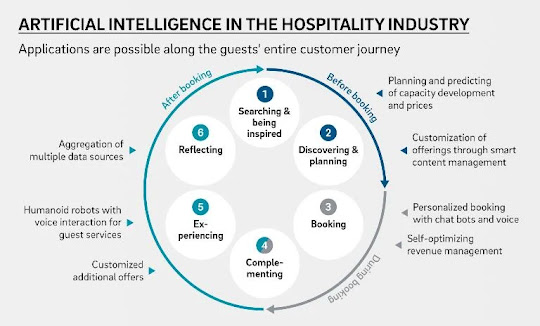Thriving in the Digital Era:
In this fast-paced world of technology and
artificial intelligence, high schools are in a hectic race to attract new
students while making sure they're fulfilling the dreams of those who are
already part of their school family.
So, how do schools stand-out from others and
get noticed by potential students and more importantly, their parents? Here are
some ideas, from our experience.
Get Tech-Savvy with interactive
smart boards, fun educational apps, and online resources that make learning
feel like an adventure. By embracing technology, schools showcase the fact that
they are staying up-to-date and making the students learning experiences super
exciting.
Let's talk about up-grading the curriculum
and subjects. Traditional ones are great, but how about adding some new ones
like Artificial intelligence, data science, digital ethics, and robotics?
Offering a mix of subjects that cater to different interests and gets every student
ready for the complex technologically driven job market is the new necessity.
Ever wished learning could be just the way
you like it? Well, Ai can help with that. It figures out how each student learns
in the best manner suited to that student and adjusts the learning of topics to
match their style. That's like having your own personal tutor. At all times.
Instead of boring old tests, learning by
working on fun projects is the new way of absorbing information. Students must be
guided to team-up with friends, think outside the box, and solve real-world
puzzles. These skills have pure gold value in the real world, where teamwork
and problem-solving is a work-related necessity.
Creativity is like a superpower, and schools
can totally help students unlock it. Imagine having spaces where students can
invent tools for the digital era, compete in challenges, and bring their most
awesome ideas to life.
We should not forget
that, school is not just about
learning facts, it's about building dreams too. School administrators must
ensure that they have professionals on their team to give top-notch advice on
what career paths suit the students interests and what kind of jobs are gaining
traction in the world.
Student’s dreams + smart advice = success!
Big tech companies require talented new
professionals. How about ensuring that students join them for internships, interact
with professionals in the field, and even doing projects that industries sponsor?
This experience gives students a head-start in the tech world.
In today’s times school has to be
more than just about classes and books. Students
should be encouraged to form and join STEM clubs, robotics teams, or participate
in coding hackathons. These activities will bring out the innovative spirit in
the students.
Technology is awesome, but let's not forget
about its impact on society. Schools that teach their students about tech
ethics and how it affects the world are like superheroes training them to use their
powers for good of the society.
Beyond the students, their parents want to
know what's happening in school too! Schools should organize workshops to show
them the new technologies that their kids are learning. It's like a sneak peek
into their tech-powered adventures.
Teachers are the most important guides in
this tech journey. Schools should make sure that teachers are qualified with
the latest tech skills. With teachers as their tech-heroes, students get the
best learning experience ever.
Students are the new
brand ambassadors. Imagine
hearing stories about students who are successful in their goals, thanks to the
environment that the school created. These stories are solid proof that the
school is unique and pro-active in their students learning process.
To sum it up, schools with years of existence and who depend on their historical name, alumni networking, traditional teaching methodology and conservative attitudes are dying a fast death.
This
new world belongs to those schools which embrace the idea that the digital era
is all about mixing the magic of technology with the heart of education. With
cool tech tools, a mix of subjects, personalized learning, and plenty of
chances to shine, schools can be every student’s launchpad to an amazing
future. It's like having a tech-powered adventure every day!
So, where does your school stand today in the
era of new-tech? Reach out to us for a complete study of your school and the
planning that you will need to succeed. Team ARIS is always just an email away.
Our experience and talent is available for your school to succeed right away.
Pic curtsey: Sartell High School, MN, USA









